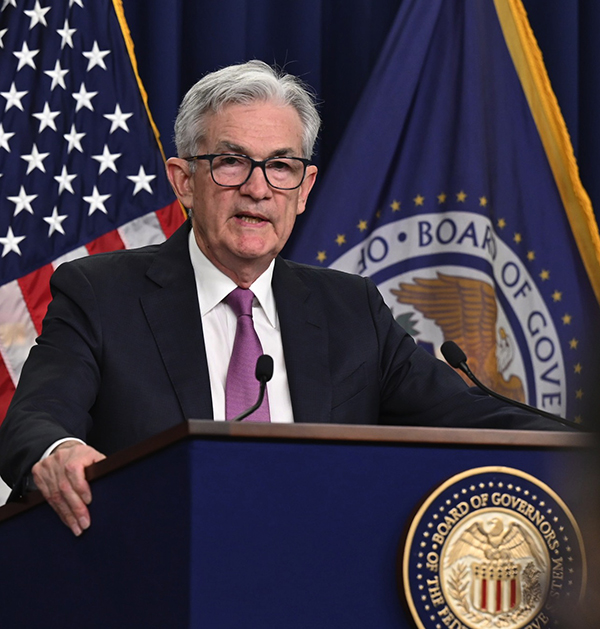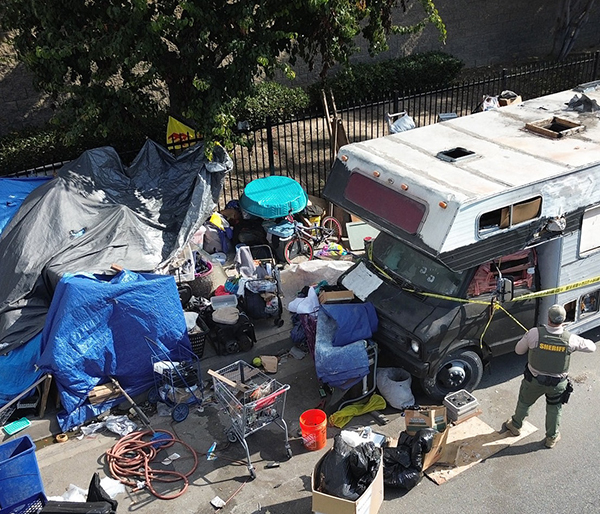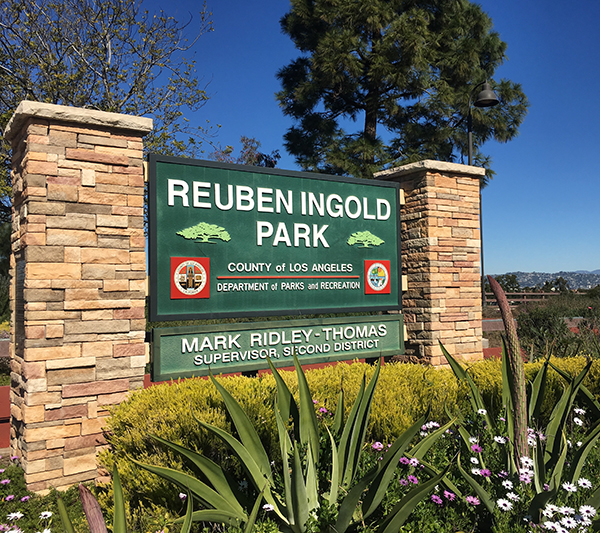By Earl Ofari Hutchinson
Contributing Columnist
On July 27, the Federal Reserve governors raised interest rates. The ¾% interest rate hike was the biggest in several years.
The news sent shock waves throughout the nation. The big rate jump meant consumers would pay more, maybe much more, for food, clothing, housing and just about every other commodity.
They would pay more for loans and for borrowing for everything from credit card purchases to home mortgages. The rate hike means greater financial pain for millions.
The tough financial times will be even tougher for lower-income workers. The prime culprit remains the glaring wealth gap between rich and poor. And it’s getting worse.
The Congressional Budget Office has done regular studies on the wealth gap dilemma. The studies cover every period between 1979 to the present. Each time, the budget office rams home the gaping spread between the top, middle and bottom rungs of income earners and the wealthy.
Incomes have increased overall by 62%, allowing for tax and inflation in the past few decades. But the lowest paid fifth of Americans have received only a small share of that. Their incomes have grown by a modest 18%.
Middle-income households are also well below the overall average with gains of just 37%. In short, most of the income gains over the past 40 years have gone to the top 1% of U.S. households. Their incomes have almost quadrupled with rises of 275%.
Meanwhile, corporations and the financial industry magnates continue to hoard tens of billions of cash. Their stockpiled cash total now stands far north of $2 trillion.
This could bankroll thousands of small- and medium-sized businesses, expand production and sales, create thousands of new jobs and generate millions in tax revenues. It would be the major boost that continues to fuel the economy.
But the Republican Party endlessly claims that forcing the wealthy to pay more will kill business growth. This fraudulent, self-serving claim has repeatedly been debunked.
President Joe Biden and the Democrats proposed relatively modest tax hikes on the wealthy, violating a sacrosanct premise — actually two premises — that Republicans base much of their political existence on.
One is that government is too big, wasteful and intrusive. The other is that those who appear to benefit most from government should pay the most for it.
The big wasteful, intrusive government line spans nearly a century of Republican politics. It has been used as a political ram to batter Democratic presidents. It was used against Franklin Roosevelt’s New Deal, Harry Truman’s Fair Deal Program that included a push for national health care and Lyndon Johnson’s Great Society jobs and education spending programs.
I also was used to pressure John Kennedy and Bill Clinton into tax cuts that directly benefited corporations and the wealthy.
This tracks directly to Republicans’ other sacred belief that the lower-end workers and the poor are in essence leeches that feed at the government trough at the expense of upper-income earners and the wealthy. That is just as bogus.
A study by the nonprofit Annie E. Casey Foundation and the Corporation for Enterprise Development found that the top 5% of taxpayers got the overwhelming lion’s share of the billions that the federal government spent on tax breaks and other wealth building strategies beginning in 2009.
The major corporations have fared even better. The tax foundation in several reports found that corporations will be showered with tens of billions in government entitlements spread over years in the form of an array of tax breaks and loopholes.
The partial checklist of those breaks includes Graduated Corporate Income Credit, Inventory Property Sales, Research and Experimentation Tax Credit, Deferred Taxes for Financial, Firms on Certain Income Earned Overseas, Alcohol Fuel Credit, Credit for Low-Income Housing Investments, Accelerated Depreciation of Machinery and Equipment, the Deduction for Domestic Manufacturing, Exclusion of Interest on State and Local Bonds, and Deferral of Income from Controlled Foreign Corporations.
Meanwhile, polls repeatedly show that a majority of Americans favor hiking taxes on the rich and preserving entitlement programs that benefit the middle and working class, and even the poor. This won’t stop Republicans, though, from still waging its age-old battle to protect the rich and batter a Democratic president on its straw man issue of no tax increases for the rich. But political posturing won’t make the wealth gap shrink. It will take a major restructuring of the nation’s tax, business and investment policies that put emphasis on the economic and financial uplift of Main Street first.
Biden and the Democrats have taken the first step toward confronting the wealth gap with their proposed inflation reduction package of congressional bills. But it’s only a first step.
This is more than reason enough why the Democrats must stand firm on taxing the wealthy. With the financial pain millions of low-income workers suffer, it’s a matter of more than fairness. It’s a matter of survival.
Earl Ofari Hutchinson is an author and political analyst. His forthcoming book is “The Midterms: Why They Are So Important and So Ignored” (Middle Passage Press). He also is the host of the weekly Earl Ofari Hutchinson Show on KPFK 90.7 FM Los Angeles and the Pacifica Network Saturdays at 9 a.m.











